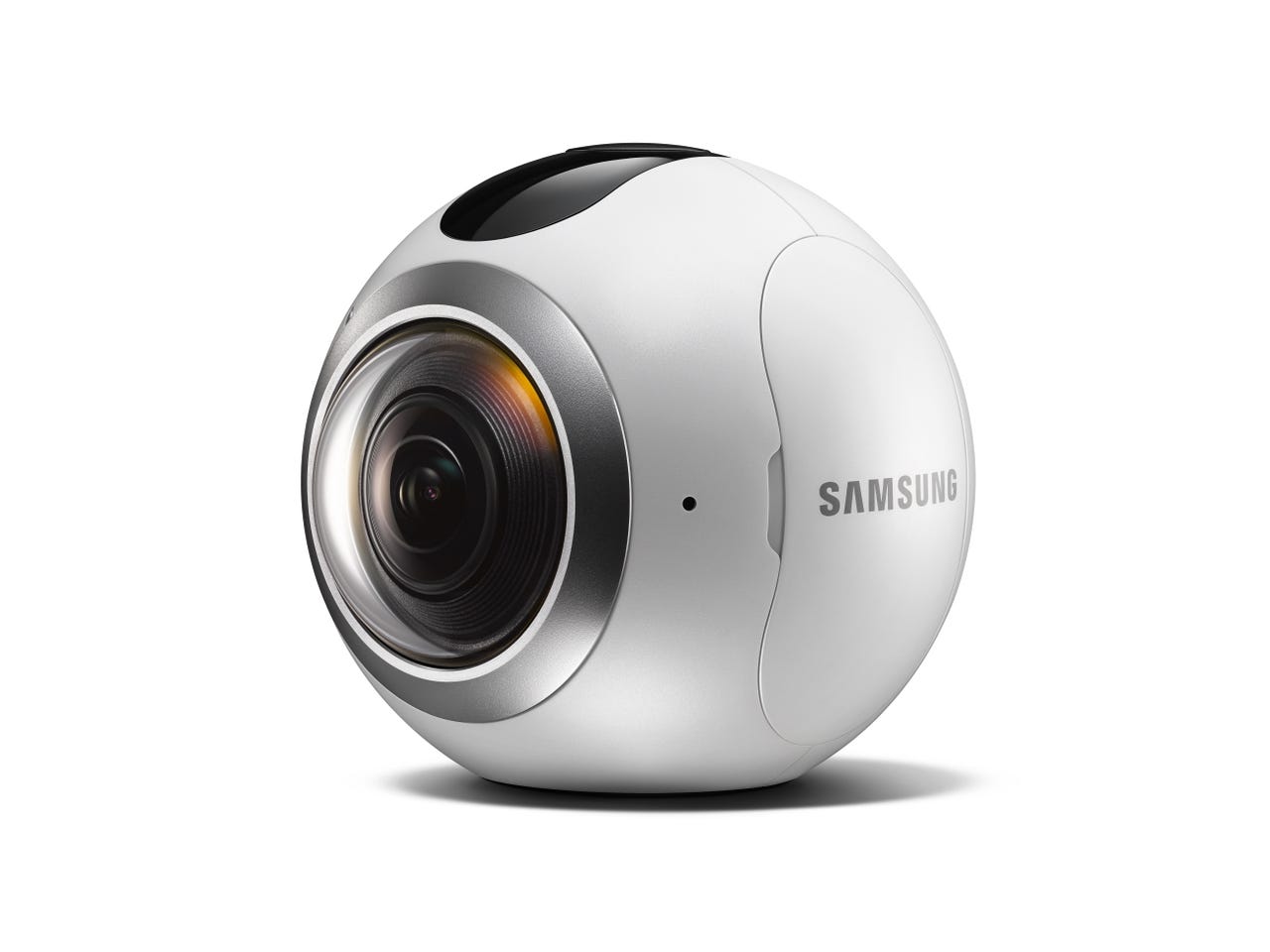Samsung's Gear 360: Can it give virtual reality a business angle?


Mobile world congress 2016
Samsung on Sunday introduced its Gear 360 virtual reality camera as it aims to enable more content creation to go with its Gear VR headset.
The big question is this: Who exactly is going to use the Gear 360? Samsung is obviously hoping that consumers will run out and create content of their own similar to what they do on YouTube with their cameras and smartphones.
Gear 360, available in the second quarter, is part of a continuum that includes Gear VR and Galaxy phones for editing. Gear weighs 153 grams and can capture 3840 x 1920 360 degree video or 30 megapixel still images. And in the ultimate product placement, Samsung's Unpacked event in Barcelona was available via Gear VR headsets.
However, virtual reality has a chicken-and-egg issue. Not enough end users have VR headsets, which generally speaking are expensive and clunky. Given the small market for VR content producers aren't exactly going to hop on the bandwagon. Samsung's live event featured Facebook CEO Mark Zuckerberg, who said that the social network would have virtual reality apps, focus on long-term engagement and work with the consumer electronics giant to bring prices down. Nevertheless, Zuckerberg added that "360 videos aren't there yet," but "VR is going to be the most social platform."
More: AR and VR: The future of work and play? | Research: 67 percent considering adoption of augmented reality in the enterprise | Executive's guide to the business value of VR and AR (free ebook) | Ten industries using augmented reality and virtual reality | Five ways augmented reality will transform your business | Five ways your company can get business value out of virtual reality
Indeed, my colleagues at TechRepublic and CNET were hard pressed to find a lot of consumer must-have use cases beyond niches for the Gear 360. See CNET's take on Samsung Gear 360 and LG's competitor.
Here's a look at Samsung's Gear 360 VR camera
And that's why Samsung has been cobbling together an enterprise use case. Like Microsoft's HoloLens, Samsung's Gear 360 could find traction within corporations first. Rest assured, Samsung's B2B unit will be pushing virtual reality capabilities.
Consider the VR use cases Samsung is pitching for its Gear VR and Gear 360 consumption and creation devices, respectively. Here's the view via Gear VR at Samsung's Galaxy S7 launch.
- Healthcare: Virtual reality simulations are being used to treat post-traumatic stress disorders, phobias and fears. Prospects: Gear 360 would enable more content to be created for these use cases, but healthcare and VR need time to bake.
- Transportation: VR is pitched as a low cost simulation machine. Airline pilots, passengers, and operators can all use VR for training and entertainment. Gear 360 would enable more real world simulations for training. Prospects: Good as Samsung already has pilots with Quantas Airlines for its VR technology.
- Hospitality: Samsung says VR offers "infinite opportunities" for travel companies and hotels. These efforts revolve around entertainment, but Gear 360 could be outfitted in hotels to improve so called VR postcards and travel tales. Prospects: Good. Samsung has efforts underway with Marriott.
- Real estate: Samsung says virtual reality tours fill a need for cross-country buyers. Gear VR and Gear 360 would fill roles on both ends of the real estate buying equation. Prospects: Decent. Real estate would have the same chicken-and-egg issue that the consumer market has. But if buyers and sellers agree VR moves homes faster tours will follow.
- Education: For education, the idea is that VR content can make presentations better. Prospects: Decent. Students may dig creating VR content more than the rest of us.
- Government: VR is expected to be used for training in multiple parts of local, state and federal government. The training possibilities for VR are endless. It's not a stretch to see Gear 360 used as a way to provide crime scene context. Prospects: Good. Law enforcement is an obvious use case for a VR camera.
Here's a look at some of the Gear 360 specs.